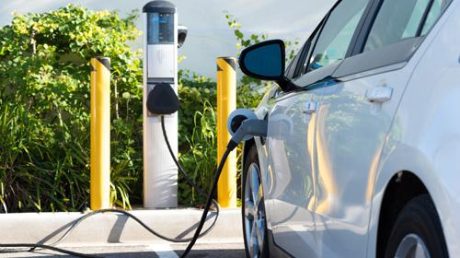The Labour government should retain the ‘new’ deadlines for the abolition of the sale of new petrol and diesel vehicles introduced by the previous Tory regime rather than reverting to the original deadline of 2030 as it has outlined it intends to do.

That’s the view of Andrew Leech, founder and managing director of Tamworth-based EV salary sacrifice specialist, Fleet Evolution.
Leech says that 60% of the UK population can readily charge their EVs at home from either drive or garage with greater convenience than filling up with petrol or diesel. But 40% have no access to home charging, with many having to resort to the more expensive, public fast charger network.
“It seems counterintuitive that, as specialists in the supply of EVs via salary sacrifice, we should be urging extending the deadline to ban the sale of new ICE vehicles to 2035.
“But the truth is that 40% of the potential EV-driving population do not have adequate access to home charging, and have to use the less convenient, more expensive public charging infrastructure,” said Leech.
He continued: “The shameful lack of action from local authorities on implementing street charging means that the only option for this portion of the population is to use the fast charge network which may not always be convenient to their home.
“And, cost-wise, a 200-mile journey can be as much as £50 using fast chargers, compared to as little as £5 for home charging.
“This, combined with a lack of older, used and more-affordable product, makes going electric not only difficult logistically but unaffordable for many, especially if the company does not have a salary sacrifice scheme or the employee is not eligible,” he said.
“We carried out a survey with Aston University in 2019 which identified that the vast majority of people who could not charge at home did not have suitable charging facilities nearby. Now, nearly five years later, very little has changed when it comes to affordable and convenient local charging in urban centres,” he added.
Last September, the Tory government announced an extension of the ban on the sale of new ICE vehicles from 2030 to 2035. But, since coming to power, the new Labour government has said that it intends to restore the 2030 phase-out date for the sale of new petrol and diesel cars to “provide certainty” to manufacturers.
In doing so, however, it has introduced ambiguity around the sale of new vans, with the DfT only referring to cars in its plans. That has made it unclear whether the deadline will also be brought forward by five years for fossil-fuelled vans.
And there is further uncertainty over the sale of both mild and plug-in hybrid cars (PHEVs), with the original legislation stating they would be allowed until 2035.
“Some insiders have suggested this rather muddy picture will be clarified at the Budget later this autumn, which will only lead to further uncertainty and delayed sales activity for several more months,” said Leech.
Leech argued that it made more sense for the government to retain the 2035 deadlines for all vehicles, as it not only gave manufacturers more time to improve and refine their model line-ups, but it provided five years more breathing space for infrastructure suppliers to extend and upgrade the charging network.
“The priority now must be in investing in better resources for the 40% of the nation who risk being left behind in this new electric revolution.
“Where we need to see a coherent strategy from the new government is in large conurbations where people park in the street, sometimes outside their own house, but not always, and where lack of charging is holding them back from going electric,” he said.
And he cited the need for greater use of and support for cross-pavement charging solutions which could connect to individual home chargers and do not require trenching or subterranean infrastructure.
“We need better, more joined-up thinking from government to provide these types of better resources for potential EV drivers who don’t have access to a garage or driveway.
“There could be greater policing of parking outside residents’ homes, for example, with fines for those who take someone else’s parking space, plus wider use of lamp-post charging.
“We need a national strategy that focuses on and connects with the 40% who are in danger of being left behind. And that will require greater action, more investment and coherent, joined-up thinking across the country,” he said.









